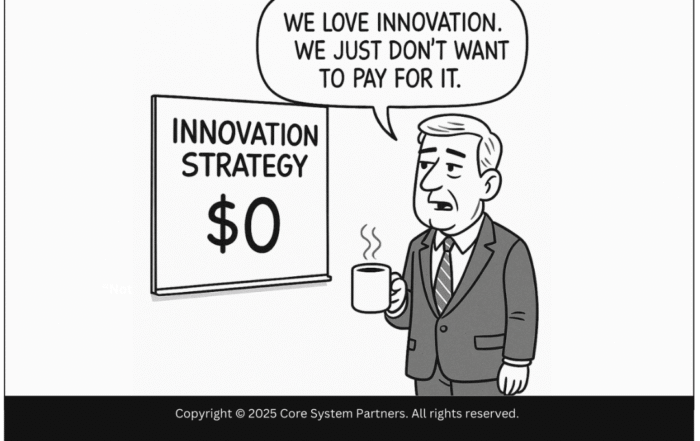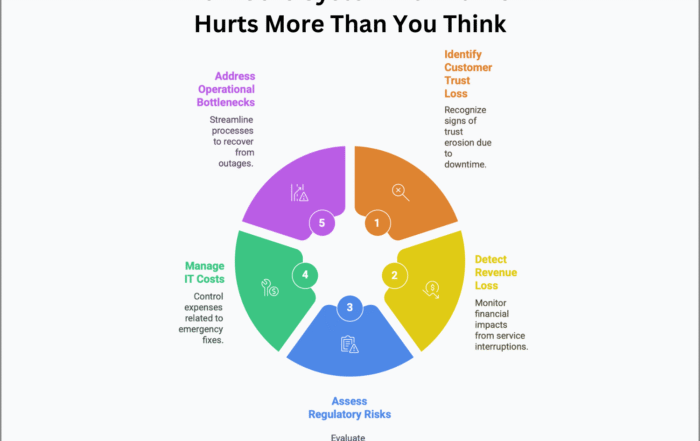
Emphasizing the importance of agility in banking, this post explores how embracing digital transformation, innovation, and customer-centric strategies ensures banks remain competitive and future-proof in a rapidly evolving industry.
In the ever-changing landscape of the banking industry, maintaining pace with the rapid transformations is no longer merely an issue; it has become an imperative to set the pace. As bankers navigate through the unpredictable and dynamic market dynamics, one question lingers at the back of their minds: “How do we future-proof our operations?” The answer, my friend, lies in the magic of agility.
Accepting Change
The only constant in the banking industry is the rate of change itself. From digital revolutions to regulatory shifts, banks are constantly on their toes, adapting to the ever-evolving landscape. Technological advancements have put this pace of change on a fast-forward button. It’s a competitive concoction, and only agile businesses can survive and thrive.
Agility in banking refers to the ability to cater to market demands not only with speed but also with flexibility and resilience. It’s a shift in mindset, where change is viewed as a golden opportunity rather than a challenge.
Crafting Agile Strategies for the Future
To bake agility into their operations and future-proof themselves, banks must adopt the following key strategies:
1. Digital Transformation: The Core of Agility
The foundation of banking agility lies in digital transformation. Through the power of technology, banks can optimize processes, enhance customer experiences, and enable data-driven decision-making. From the convenience of mobile banking to AI-driven analytics, digital tools can significantly ramp up operational efficiency.
2. Innovation: The Ultimate Enabler of Agility
Innovation is the secret sauce to agility. Fostering an innovative culture will trigger the development of new products, services, and processes, keeping banks one step ahead of the competition. This includes not only technological innovations but also innovative thinking about business models and customer engagement.
3. Flexible Working Patterns
Rigid 9-to-5 schedules are a thing of the past. Flexible work models, such as remote working and adaptable hours, can lead to happier and more productive employees, making banks more resilient against disruptions like the recent pandemic.
4. Customer-Centricity: The North Star
With ever-increasing customer expectations, adopting a customer-centric philosophy positions banks to meet and create customer intimacy. This entails not only personalized service but also actively listening to feedback and making necessary changes.
5. Agile Methodologies: Blueprint for Success
Agile methodologies like Scrum and Kanban can be applied beyond software development to various banking operations, fostering flexibility, efficiency, and cross-team collaboration. By breaking projects into manageable components, banks can reduce turnaround time and enhance adaptability to changing market conditions.
6. Risk Management: Navigating in the Dark
As banking operations accelerate, risks can arise and change rapidly. An agile risk management approach with real-time monitoring and timely response mechanisms can help banks counter threats, avert crises, and seize opportunities promptly.
The Road Ahead: At the Helm with Preparation
Banking is a domain that exemplifies the reality that the future belongs to the agile. Agile banks will be best prepared to navigate the vagaries of a rapidly changing market, rise as leaders, and thrive amidst incessant change. The difference lies not just in surviving but in thriving in a world of constant transformation. The banks that embrace agility with open arms will be the ones that survive and prosper. Time waits for no one, and in the world of banking, being future-proof is not a choice but a mandate.
Found this article interesting? Check out these three related reads for more.
- Top 10 reasons why “That’s not how we do things around Here” will kill your core banking transformation
- Why is it referred to as a core banking transformation instead of just a migration?
- Future of digital banking AI, Blockchain, Cloud, and Cybersecurity trends
#AgileBanking #OperationalEfficiency




